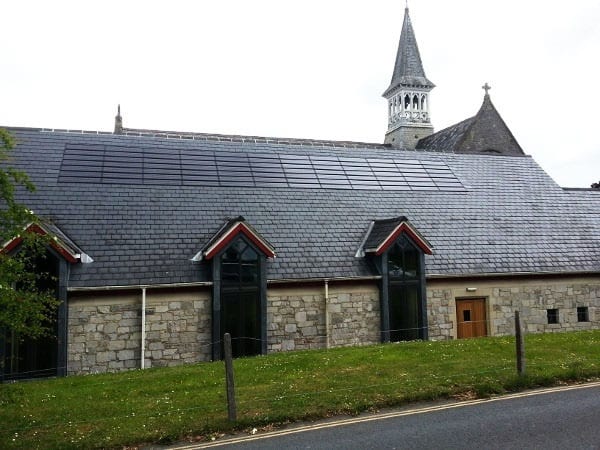
March 4, 2019; Energy News and Bridge Magazine
Good “green” public policy should both encourage the growth of energy from renewable sources and ensure the benefits and costs are shared fairly. At the state level, this can create, as in Michigan, a tug-of-war between homeowners who own rooftop solar panels and private utility corporations protecting their monopoly franchise. As in so much of our political debate, nonprofit 501c4 organizations play a large role in the process; because of a lack of transparency, they leave unanswered many questions about who they represent and what their objectives are.
The Michigan Public Service Commission (MPSC) is now considering a request from a major power company to change the current system of cost-sharing and raise rates overall. The MPSC finds itself lobbied by a network of nonprofit organizations advocating for a proposal that would replace the current “net metering” approach, which requires utility companies to pay rooftop solar panel owners for any excess electricity they generate at the same rate as they charge for power from the grid.
Three 501c4 organizations—Alliance for Michigan Power, Michigan Energy First, and Michigan Energy Promise, which are closely affiliated with DTE Energy, one of the state’s largest private utility firms—have strongly pushed for changes, using an industrywide framing of the issue as one of fairness. They argue not only that it is important to ask homeowners to pay a greater share of the cost of maintaining the overall energy infrastructure, but that maintaining the current approach is discriminatory, “mirroring utility efforts in recent years telling low-income residents and communities of color that the (current) policy harms them most.”
Michigan Energy Promise says it has “allied with groups like the Detroit branch of the NAACP, the Arab American and Chaldean Council, the Urban League of Detroit and Southeast Michigan, and various churches and faith-based groups.” Ron Fournier, a spokesman, told Energy News they represent “a wide and broad coalition, including leaders in specific communities in Detroit that need the most help, so they’re not easily preyed upon…specifically African American ministers who are tired of people coming into their community selling them services and contracts they don’t need.”
Bishop W.L. Starghill Jr., a representative of Michigan Energy Promise, argued in Bridge Magazine that “private solar lobbyists in Lansing are pushing for a system that allows private homeowners to put a Cadillac-style energy system on their rooftops and pass the bill for maintaining the roads on to the rest of us.”
Sign up for our free newsletters
Subscribe to NPQ's newsletters to have our top stories delivered directly to your inbox.
By signing up, you agree to our privacy policy and terms of use, and to receive messages from NPQ and our partners.
But how grassroots are these 501c4 organizations anyway? And are they representative of the faith community, as they claim, or are private energy companies just hiding behind a few church leaders in a classic case of astroturfing? Leah Wiste, executive director of Michigan Interfaith Power and Light, says that “hundreds of faith leaders support net metering, with several churches participating in the program.”
Wiste argues DTE’s revenues are hardly impacted by net metering, if at all. “This whole idea that somehow independent solar producers are being subsidized or are doing this on the backs of the poor is just baloney. You don’t have to look far for proof that if they actually cared about the poor, they wouldn’t be proposing these massive rate hikes that will hit low-income customers the hardest.” Wiste added that attempts to portray net metering as a social equity problem is “exploiting some class and racial divides.”
What is clear is that three 501c4 nonprofits’ leadership is closely aligned with the energy industry. According to Energy News, “Michigan Energy First was created in 2014. Tax filings from fiscal year 2017 list the group’s president as Renze Hoeksema, who is also DTE’s director of state government affairs; and its treasurer as Theresa Uzenski, the utility’s manager of regulatory accounting. A third official is Eric Doster, an attorney linked to a similar advocacy group funded by Consumers Energy.” They have been able to raise a large war chest, estimated at almost $30 million, to ensure they have the resources needed to support their work. As 501c4 nonprofit organizations, they are not required to disclose their donors, so it is not known whether this comes primarily from industry sources or if it represents a larger grassroots effort.
MPSC Commissioner Dan Scripps, recently appointed by Gov. Gretchen Whitmer, sees the state’s current net metering policy as a win-win for all consumers. In a statement, he said that “customers with rooftop solar systems are not only paying their fair share, they’re actually helping to reduce costs for their neighbors as well. Specifically, the benefits of solar DG [distributed generation] exceed the retail cost of electricity and the value of solar is greater than the compensation solar DG customers receive under net metering programs.”
There’s no issue in the fact that utility companies aim to protect their interests. But, under the banner of working toward the public’s benefit, nonprofit organizations have entered the discussion behind a screen of anonymity to muddy the debate. This does not help the public, and it does harm to the nonprofit community, which depends on the public’s trust to maintain their special status.—Martin Levine













